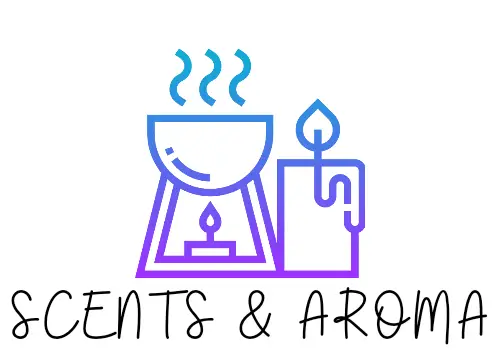With this website being called Scents And Aroma I think I am perfectly placed to answer the question abut what is the difference between “Scent”, “Aroma, and “Perfume” and that is exactly what we are going to discover in this article.
Scent, perfume, and aroma are always used in related contexts because they have a lot of similarities. However, though they all fall under the broad umbrella of smell, they do not share the same meaning.
In this article, we will define these three terms with some examples, talk about their similarities, and explain the differences between scent, perfume, and aroma.

Is there a difference between scent, perfume, and aroma?
You must have used the words ‘aroma’ and ‘scent’ interchangeably a couple of times and you are not entirely wrong. Sometimes, scent and aroma are synonymous and do overlap in some contexts. However, they do not have the same meaning so you can’t use them interchangeably every time.
Although perfume is quite different from these two, it is used synonymously with scent when used to refer to a liquid applied to the body to make it smell pleasant. To fully understand the differences between scent, perfume, and aroma, we must define each term separately.
What is a Scent?
A scent is a distinct odor or smell. A scent is the unique smell of a person, animal, plant, flower, etc, and this smell is not always pleasant.
For example, when you talk about the scent of a person, it mostly refers to the smell of that person’s perfume or spray. Someone’s scent is distinctively associated with the person, that is, people have differing scents.
Animals also have scents. Some use their scent to declare their readiness to mate or to mark their territory. For instance, the scent of skunk. Flowers and spices also have their scents as does a scented candle.
Examples of scents are:
- The scent of cut grass.
- The scent of roses.
- The scent of ripe fruits.
- The scent of dried feces.
- The scent of musk.
What is a Perfume?
Perfume is a pleasant-smelling liquid. It is a liquid substance that is made from a mixture of essential oils, flowers, animals, roots, spices, or synthetic fragrances. Perfumes could even be made in the lab to mimic different scents; animal scents like musk, civet, ambergris, flower scents like rose, lavender, and other smells like bamboo, and vanilla.
Perfumes emit pleasant scents and are used in cleaning detergents, fresheners, and cosmetic products to make them smell nice. However, perfume is mostly associated with the fragrance mixture used on the body. Types of perfumes include:
- Floral perfume.
- Oriental perfume.
- Citrus perfume.
- Woody perfume.
What is an Aroma?
An aroma is a pleasant smell, especially of plants, flowers, food, spices, and wine. Aroma is used to refer to the distinctive smell of something pleasing to the olfactory.
For example, the aroma of brewed coffee or the aroma of cinnamon. The smell of plants and flowers in particular are used for aromatherapy. Aroma is restricted to what we can smell – a pleasant smell.
Other examples of aromas are:
- The aroma of peppermint.
- The aroma of freshly made pizza.
- The aroma of red wine.
- The aroma of cooked rice.
What are the Similarities Between Scent, Perfume, and Aroma?
To figure out how they differ, you need to know what makes them similar.
Basically, scent, perfume, and aroma all refer to something that can be perceived by the olfactory sense. They all infer the different natural or unnatural smells around our environment.
Aroma and perfume both relate to pleasant smells. When we talk about an aromatic smell, it is in relation to a pleasing and appealing smell, like the aroma of freshly baked bread. Also, when we talk about perfumes, we refer to a liquid substance with a pleasant smell.
Perfume and scents both synonymously refer to a liquid substance that emits a pleasant smell, as in the perfume or scent used on one’s body.
How Do They Differ?
Despite the resemblances between these three terms and their similarity in use, they have some very noticeable differences. These differences are:
- Type of Smell:
Aroma and scent both refer to the smell of things. However, aroma is always used positively, that is, aroma always refers to a pleasant smell like the smell of baked bread or the smell of sugar syrup. Perfume is also solely a pleasant smell.
On the other hand, scent is more generic. It can be used to refer to both pleasant and unpleasant smells. For example, while the scent of brewed coffee is pleasing and inviting, the scent of a skunk is unpleasant when used to defend its territory.
- Application:
Since aroma is always pleasant to the nose, it is quite restrictive in its application. It applies to the smell of food, wine, spices, plants, etc.
However, it cannot be used for people and animals, but scent can be used in such a context. Rather than say, the aroma of the lady, you should say, the scent of the lady.
Perfume differs from scent and aroma because it is not a smell per se, but a liquid substance derived from flowers, spices, and synthetic fragrance. So perfume gives off a scent. It is only used in reference to people and things that are perfumed, like cleaning products.
- Origin:
The smell a perfume emits is its scent. In other words, while scents can be gotten directly from plants, and flowers, they can also be derived from perfumes whether the perfume is made from essential oils or synthetic fragrances.
Furthermore, perfume sometimes gives people and things their scent. Thus, the smell of perfume is a kind of scent. For instance, you can associate a distinct perfume scent with someone who uses the perfume. Also, the scent of washed clothes is often the scent of the perfume used in the cleaning product.
- Use:
Lastly, while scent and perfume can be used to describe the pleasant smelling liquid gotten from plants, flowers, and synthetic fragrances, aroma is not used in this way because it strictly refers to what we can perceive. Thus, it is intangible.
Conclusion
Scent, perfume, and aroma are closely related to each other and are sometimes synonymous. They are all used in the context of smell whether referring to a smell or a substance that can be smelled. However, they do not share the same meaning and have some dissimilarities that differentiate one from another.
- Can You Put Perfume In A Humidifier? (Read First) - September 17, 2022
- Can You Put Essential Oil In A Steam Mop? (Safety Advice) - September 17, 2022
- How To Make Lavender Oil At Home ( Candles And Diffusers) - September 9, 2022
